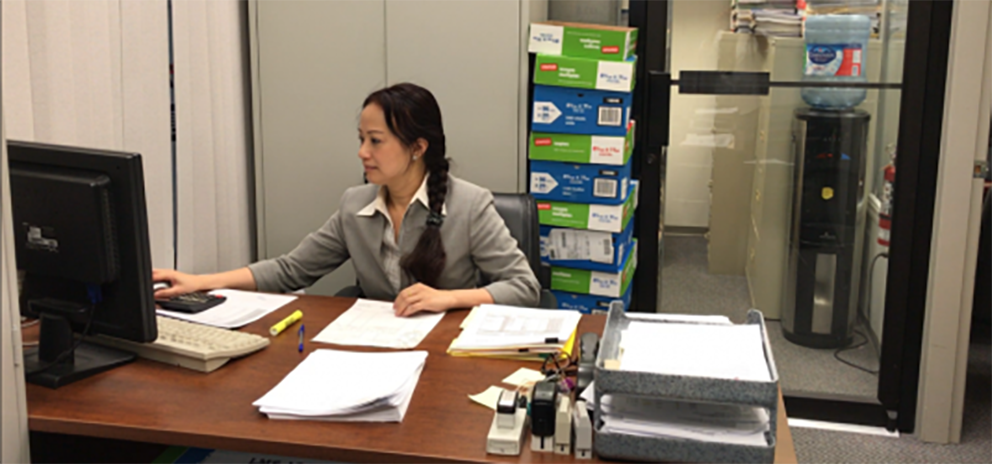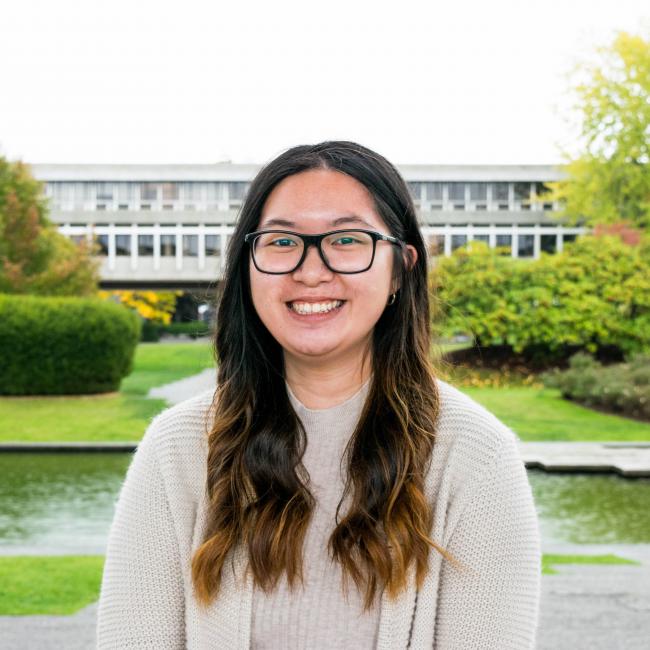
After being self-employed for several years, I felt the need to make a change. It did not take me too long to choose accounting as my potential career goal because accountants were in demand and it was easy to find a job. However, I knew very little about accounting and definitely had no passion for it.
While studying at Beedie, I excelled in all my courses except for (guess what?) accounting! This was largely because I found it dry and unnecessarily complicated. The concepts and rules taught in school seemed needless and confusing. Struggling with this lack of interest in accounting, I consulted a professor about the possibilities of switching to a different field. He then informed me that academic learning and accounting practices were quite different from each other, and practical accounting work would be much more interesting and fun. He advised me to be patient and give application-based accounting a try first.
After seeking similar advice from my sister, I reluctantly registered for the Beedie co-op program. After the registration, however, I started to regret my decision because it was highly a demanding program, that too in addition to the heavy academic load I had to keep up with. The co-op program contained three parts: getting ready, seeking and working. During the ‘getting ready’ part, I was required to learn to write cover letters and resumes. It was also mandatory to participate in network events and workshops. During the ‘seeking’ term, I had to customize cover letters and resumes for each company. Additionally, I had to prepare answers for possible interview questions provided by my co-op advisors. The most unpleasant part of the journey was being rejected by employers over and over again, especially when I had little interest in the job I applied to.

Co-op at Timothy Lo & Co.
CPA during the summer term of 2017 gradually changed my view about accounting and I started my co-op at Timothy, a public accounting firm providing accounting and tax services to clients. As I started working, I realized that the company’s culture was quite family-like and the work environment was quiet and peaceful. With help from my supervisor, I quickly adapted to the work. Not long after, I started to work independently while requiring limited supervision. I learned bookkeeping including setting up accounts, generating invoices, issuing ROE, making payroll and reconciling bank statements. For the first time, I was able to understand the significance of accounting and accounting principles: how important it was to provide valuable and accurate accounting information to various stakeholders involved in decision-making. The application of the academic knowledge to real practice aroused my interest in accounting so much more. Subsequently, I also excelled in the course on Advance Accounting.
The co-op at the same organization for the spring term of 2018 helped me discover my passion in accounting. It is the busiest tax season for accounting firms from January to April every year. It was during this period that I was given the chance to work right away on tax filing for corporations and individuals. I learned to compile accounting information and produce financial statements for corporations. I issued T4, filed T2 for Canadian Controlled Private Corporations and generated T1 for individuals as well. At the same time, I was taking the course BUS 329-- Income Tax for Business Decision-Making. This course is taught me the basics of the Income Tax Act and its applications and it provided me with the basis for T2 and T1 filing. Moreover, one of the important applications of the Income Tax Act was tax planning which allowed individuals and corporations to legally save tax payment by using various methods such as reserves and deferred tax payments. The ideal of helping clients to legally optimize their income intrigued me as it let me utilize my strengths- critical thinking and analytical skills. Being able to help corporations and individuals save tax payment was also rewarding. Finally, after four years of searching, it felt like I was on the way to finding my potential career path.
Being a student who has greatly benefited from the co-op program, I would strongly encourage others to join the program. Co-op advisors can be very helpful in providing information and coaching students through the whole process including writing cover letters and preparing resumes, networking, conducting job searches and preparing for interviews. This exercise is also valuable in searching for jobs in the future. Additionally, the co-op program helps students not only know the field they aspire to be in but also apply learning to practice. It equips them to at least try and find their true career paths.























